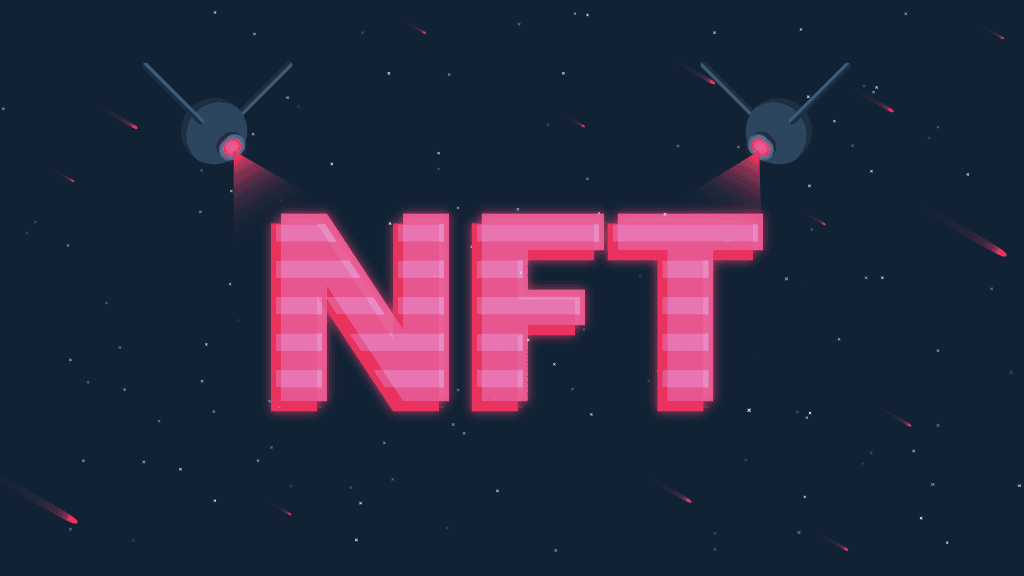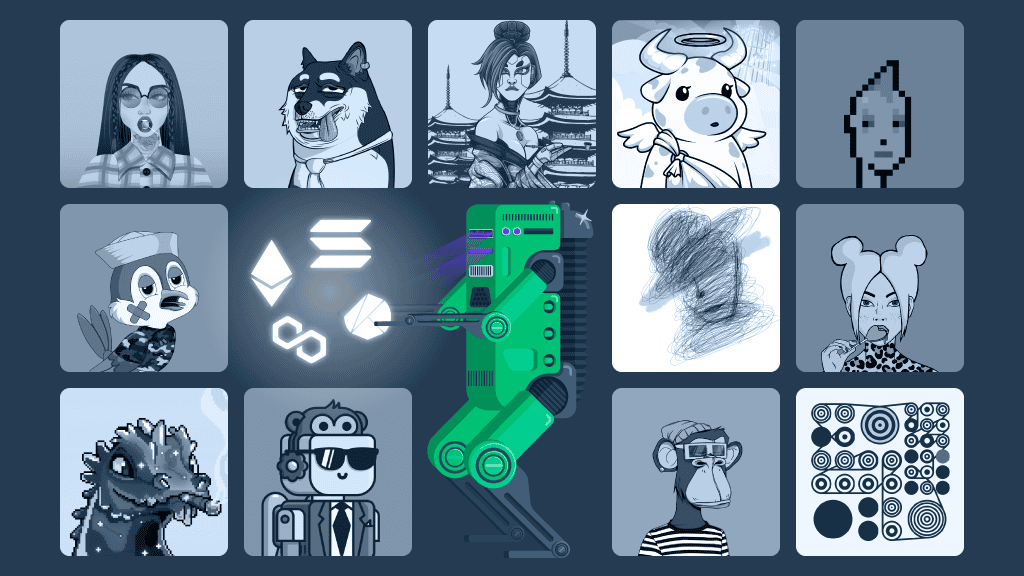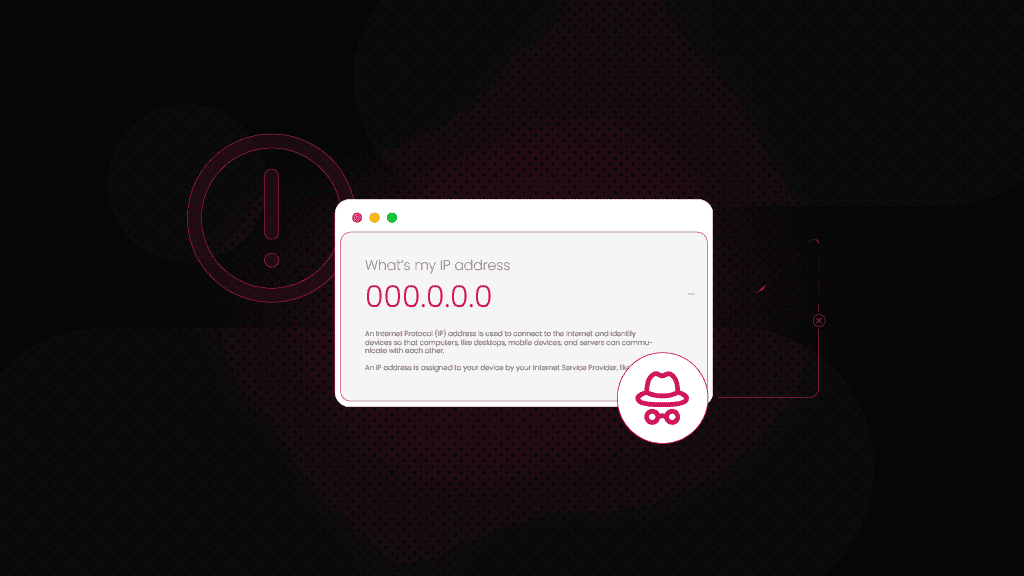How Can Residential Proxies Make Your NFT Flipping Smoother?
If you were not living under a rock over the past years, you might have already heard about NFTs. Or, the chances are, that you already know quite a lot about this, and you are just looking for ways to make your NFT flipping experience smoother. Either way, we are ready to answer some questions around this hot topic and offer easy solutions you could try.
Let's start with some basics.
What is an NFT?
An NFT, or a non-fungible token, is a data unit stored on a blockchain acting as a contract and representing real objects, usually digital artwork. Each NFT is encoded, making its ownership and transaction history trackable.
Since it is based on the blockchain, how are NFTs different from fungible tokens, like bitcoin? The difference is in the prefix "non". Fungible tokens have the same value – 1 BTC is equivalent to another 1 BTC in the same time frame. It’s completely different when comparing non-fungible tokens – it is impossible to replace one NFT with another one since they both are uncomparable art units. You cannot compare Monet with some street art, right?
What is the purpose of NFT?
Now, when you already know the basic concept, let's dive deeper into those waters. The initial NFT idea was born to help digital art creators to monetize their work while preventing duplicates and making ownership rights easier to transfer. Such tokens leave copyrights to the creators and provide the opportunity for anyone to purchase, own, and freely trade NFTs in the secondary market. Shortly, NFTs make sure that only the original art items will participate in the market. Alright, this stuff is getting a bit bedazzling. We are here to explain more.
An ocean of NFT use cases

Are NFTs used only for digital art? Well, they are better known for trading digital art, but, in reality, the possible use cases can reach as far as the human imagination. Since NFT ensures the authenticity of physical products, tokens can be used in almost all industries where it is necessary to confirm ownership or identify an individual.
NFTs make real estate payments easier, help store individual medical information, like medical records, prove intellectual property and patents, replace ticket systems while providing unique IDs to every participant. Not all the use cases are widely implemented yet, but since NFTs are gaining more awareness, we might see them in our close environment shortly.
Key things you should have in mind while flipping NFTs
NFT trading volumes jumped quite significantly over the past few years. Opportunities to flip NFTs, aka buy low and sell high, are growing, and many tips and tricks are floating around. We collected some core concepts to help build your flipping strategy and look for potential skyrocketing projects.
Understand the NFT rarity concept
Let's clarify something – the popularity of NFT is not about how cool the item looks from the art perspective.
The value of NFT is primarily determined by rarity showing how rare a particular NFT is among other NFTs in the same collection. Rare NFTs generate excitement that transforms into significant changes in price. Basically, rarity develops scarcity, therefore, it is one of the most essential factors while determining the asset's value. Everybody wants extraordinary things, so NFT is not an exception.
NFT rarity is determined by attributes, distinguishing it from others. For example, "black lipstick" can be one of the NFTs properties. Each attribute has a percentage showing how rare it is among other assets in the same collection. However, to simplify things, many tools have been created for checking the NFT rarity score, so you do not have to delve deeper into the exact calculations.
Know the risks
You probably already know that investing in general always comes along with risks. The relatively new NFT market is not an exception.
The booming NFT market still lacks internal regulation, and some people take advantage of this by creating fake buzz around some projects. Brand-new investors should be alert to the so-called wash trading, which is about artificially manipulating some projects to increase their activity and manipulate the price by doing that. Yikes.
Also, there is still a chance to face some NFT duplicates, which can catch some less-attentive investors' off-guard. The great news is that using a web scraper is one of the most effective ways to identify duplicates. You can do it by scraping the contract address or attributes of NFT, and later check if the NFT is the original one or it was replicated.
Another point that you have to consider before flipping NFTs is the market illiquidity. In other words, there is no guarantee that you'll be able to resell your purchased piece of art after some time. So, keep in mind that the risk is high while trading NFTs, and do your own research before taking action.
Pick legit platforms and the right tools
A straightforward way to avoid NFT replicas is to choose official marketplaces. OpenSea, SuperRare, Rarible, and Mintable are probably the most used platforms.
If you are interested in niche NFTs, you can also focus on more specific marketplaces. If you are passionate about trading card games, Myth Market is your place to go while if you are interested in tweets, better check Valuables by Cent.
However, the types of NFTs are not the only difference between the marketplaces. While their core principle is similar, they differ in the features offered. Some offer advanced security, others low gas fees, because, for instance, they run on the Solana blockchain. The platforms also have separate wallet compatibility and cryptocurrencies on which they work. Of course, the verification process of NFTs listed also differs, so better double-check how it works to avoid buying the stolen ones.
Check the community and creators' background
The community is another essential aspect of the NFT world. If you want to pick the right NFT, check the project's followers on various social media platforms.
First, don't be fooled by a large community – some people still use fake followers, so better check the engagement. If you see some real buzz happening, the project could be legit. The value will probably grow faster for NFTs with solid communities around them. Such groups of people are gathering on Discord and elsewhere, so if you are interested in some NFT projects, you should definitely go and follow them on those channels.
NFT tools you should try
It’s easy to get lost in the NFT market. Some tools were created to improve your experience:
- BitDegree helps you to analyze NFT collections and track the progress of your favorite NFTs.
- Moby aids you to grasp the freshest token statistics and make decisions even faster.
- Rarity.tools checks your chosen NFT score and helps you determine if the particular digital masterpiece is worth the money.
How to be in the right place at the right time?
Let's be honest – NFTs are a fast-moving market, and it is becoming harder and harder to find the best projects, especially if you are not a full-time trader. But is there a possibility to level up in this game by putting in less effort? Yup, and the answer is bots.
Every NFT collector's primary pain is to find a potentially successful project early on. If you have been around the NFT market for some time, you have probably noticed that it is pretty hard to purchase a potentially successful NFT very early since many investors are hunting for them actively. There are different NFT trading strategies you can implement, but if you are not a full-time trader, it may be complicated to check everything at once.
Bots can help you in this case. You can build one by yourself or you can ask someone to build it for you. A bot can constantly track various NFT marketplaces, tools, and buy or sell NFTs according to the pre-made algorithms. Basically, you can participate in the NFT market while you're sleeping. So, if you are willing to hunt for the perfect bid of NFT without missing any significant market movement, using bots might be your way to success.
Bots limitations
Using bots for selling and buying NFTs will increase your chances of spotting the best possible project. However, it’s possible that bots will be detected and blocked, leaving your precious plan ruined. Bots usually act differently from real users – they are super fast and make a lot of actions in a short amount of time.
If they come from the same IP address, this is a red flag for many websites that they are dealing with a robot. So, it is walking a fine line between being quick in detecting new potential projects and making good bids, but being human enough not to be blocked. If you are sweating while trying your best not to cross the line, we have a Smart solution for you – our residential proxies.
Automate the NFT flipping with residential proxies
Your bot is cool, but simply too fast and keeps getting blocked? Pair your bot with our residential proxies to unlock the full potential of the NFT market. Proxies are really your go-to solution if you want to level up your automatic tokens flippin'.
Residential proxies are the best fit if you want to humanize your bots. Since residential IPs come from real devices, you can make many buying or selling orders at the same time without getting blocked.
The best part is that you can choose which type of session – sticky or rotating – is handier to experience the NFT game to the fullest. If changing the IP address location each time your bot takes action is more relevant, try rotating sessions. And if you want to stick around with the same IP for up to 30 minutes – sticky sessions are worth a shot. Either way, you can easily manage all the session-related stuff with our free proxy extension.
You may ask why not datacenter proxies, which are often faster and more stable? While that's true, they are easier to detect since they come from servers rather than household devices. They are more adaptable when you need a more extended session with a single IP, and that's definitely not what you want with your bot.
Wrapping up
If you are looking for something that will never run around and desert you in the NFT game, pair your bot with our residential proxies. This combination can spare you a headache and allow your bot to run smoothly.
Check our plans – rumors say our proxies start at $4/GB* – and start flipping your NFTs like a rockstar today. Finally, two more things – we have round-the-clock available customer support heroes who are ready to help you with setup and a 14-day money-back option if you change your mind (terms apply). Level up your bot activity now not to be sorry later!
About the author

Ella Moore
Ella’s here to help you untangle the anonymous world of residential proxies to make your virtual life make sense. She believes there’s nothing better than taking some time to share knowledge in this crazy fast-paced world.
All information on Smartproxy Blog is provided on an as is basis and for informational purposes only. We make no representation and disclaim all liability with respect to your use of any information contained on Smartproxy Blog or any third-party websites that may belinked therein.









